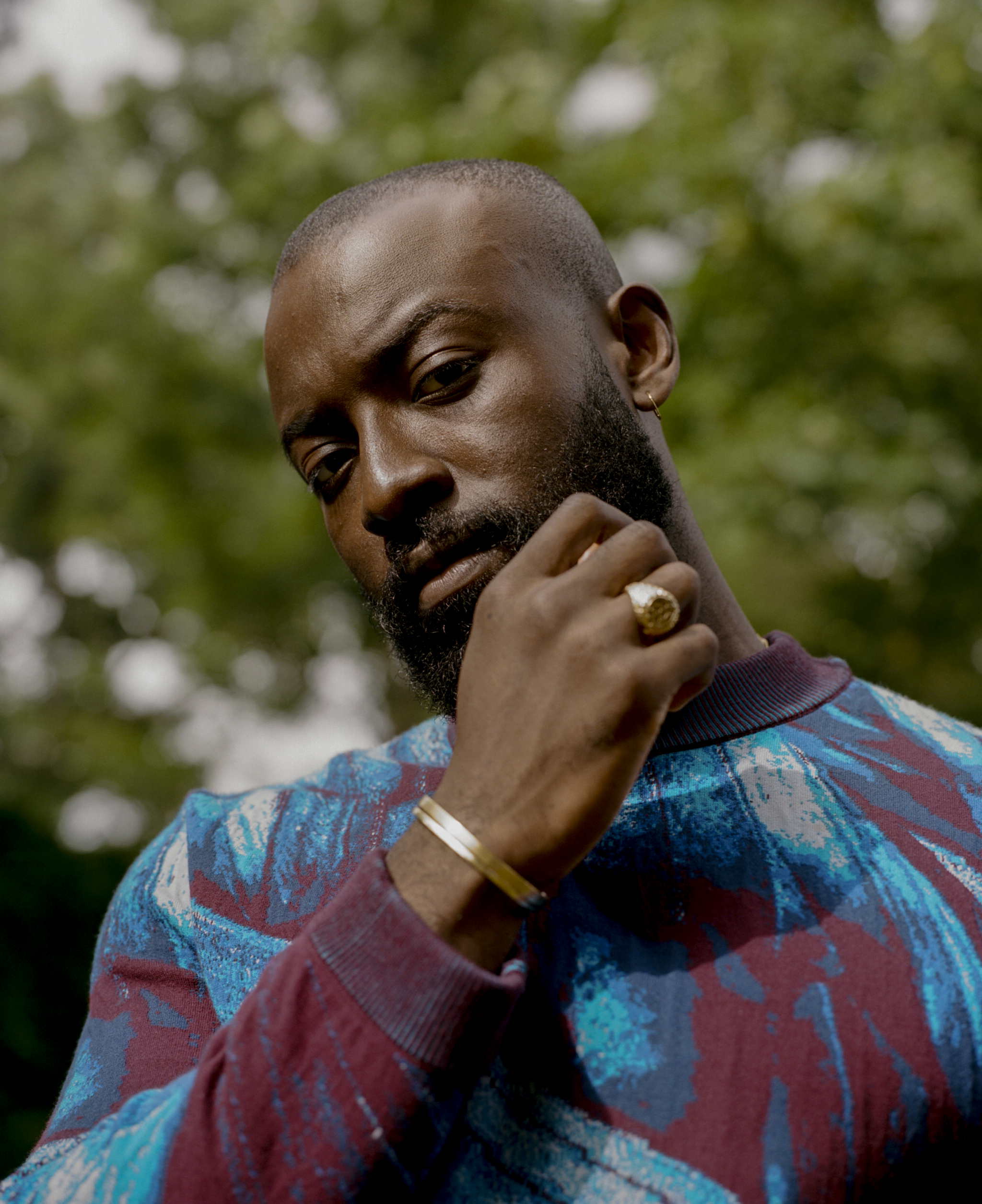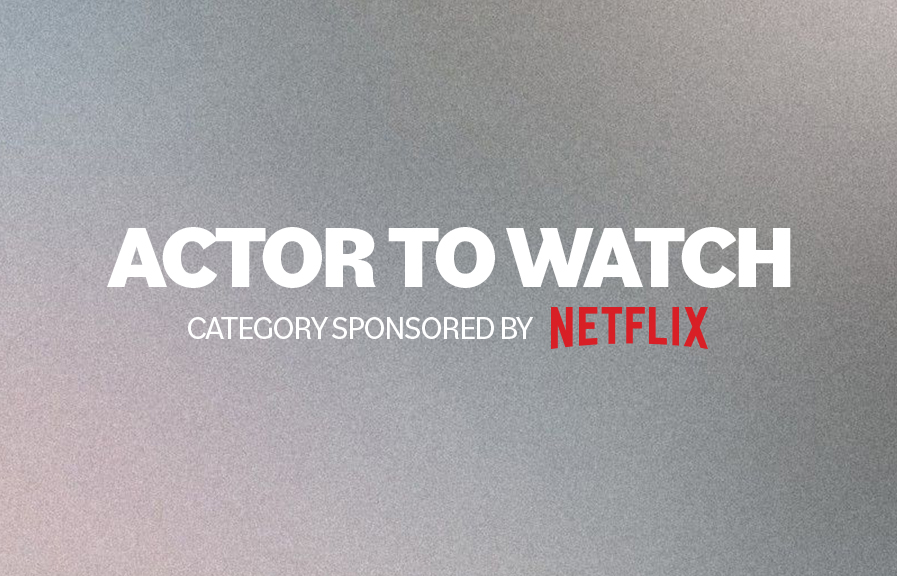Amahla is Analysing the World Around Her Through Soul Music
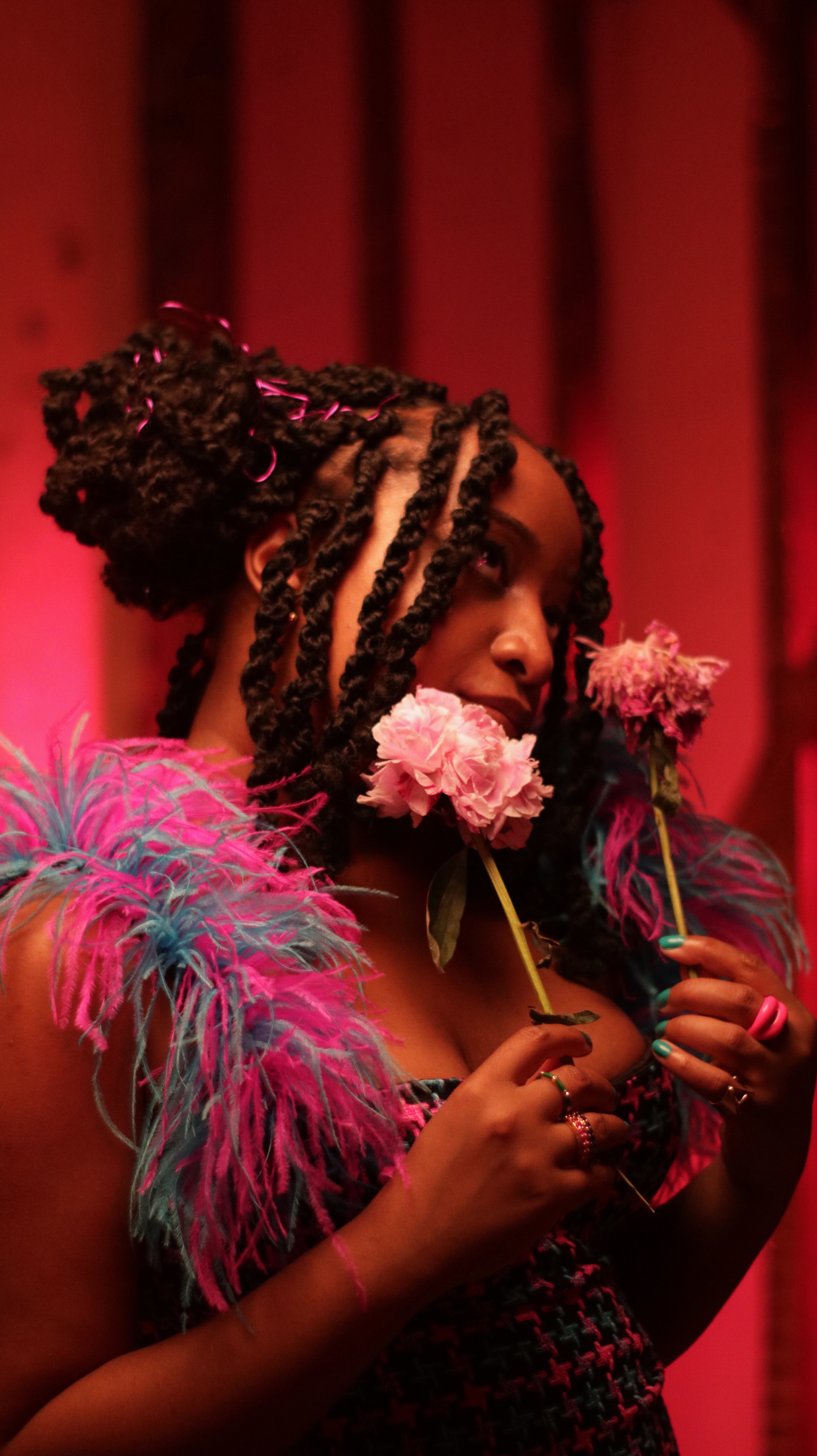
‘I like talking’ Amahla responds as I ask her how she feels about interviews. They can be daunting at times but she takes our whole conversation in her stride relaying her thoughts on music, politics and womanhood to me. Her latest single ‘Reason’ tackles the subject of manipulation and gaslighting – giving the listener a window into her mind as she comes to the realisation ‘that you were and are being manipulated.’ Over powerful production by frequent collaborator ‘Tevin’ , the pair created an ‘empowering and uplifting’ yet relatable ballad for anyone in a similar circumstance to feel wholeheartedly. The perfect blend of nuance, beautiful vocals and heart wrenching song writing – the track perfectly encapsulates everything Amahla set out to do. As we virtually sit together over zoom – Amahla cosy on a couch, me in the purple LED flooded offices of GUAP – we discuss the importance of activism in her music, the definition of soul and the impact she wants to have on the world.
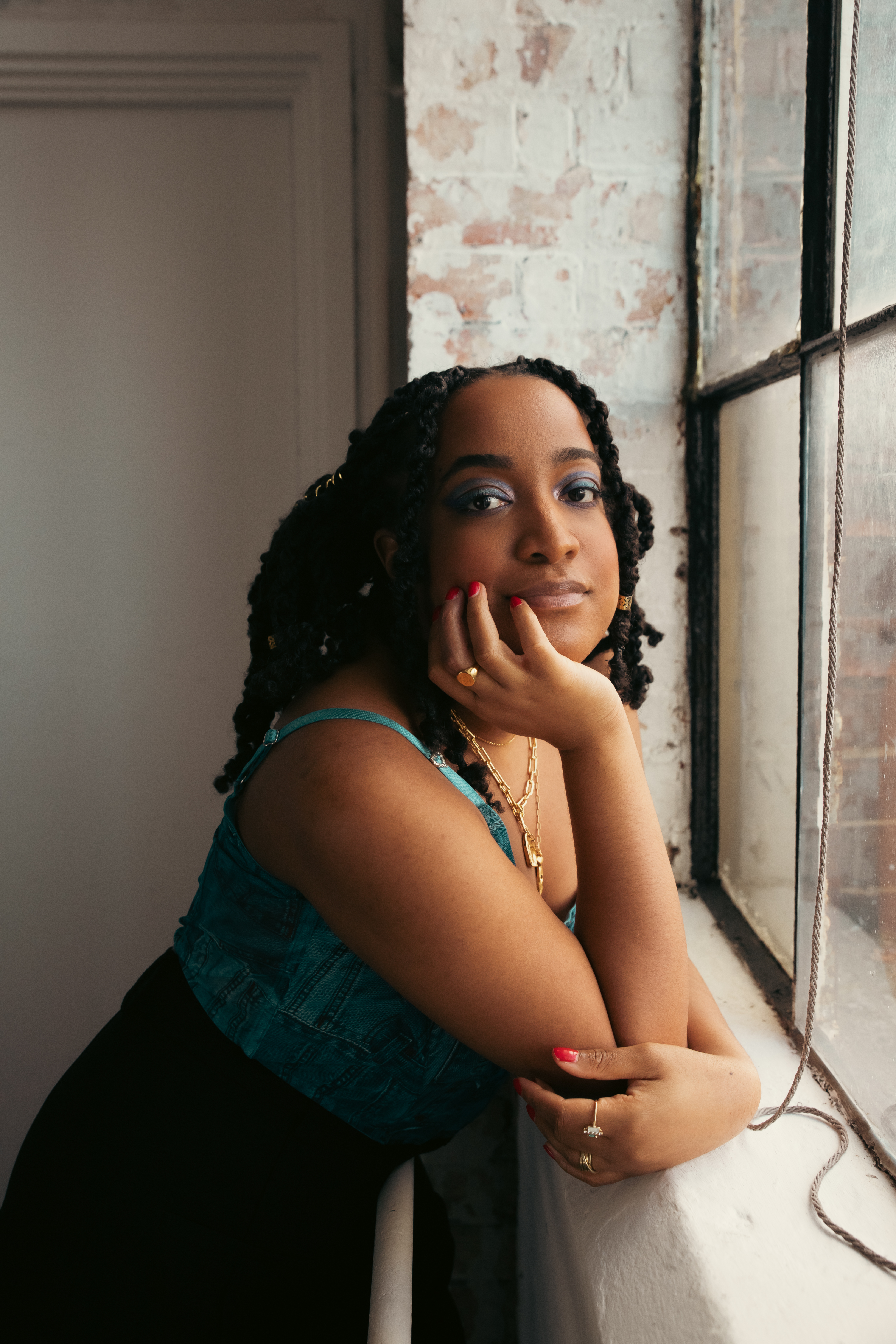
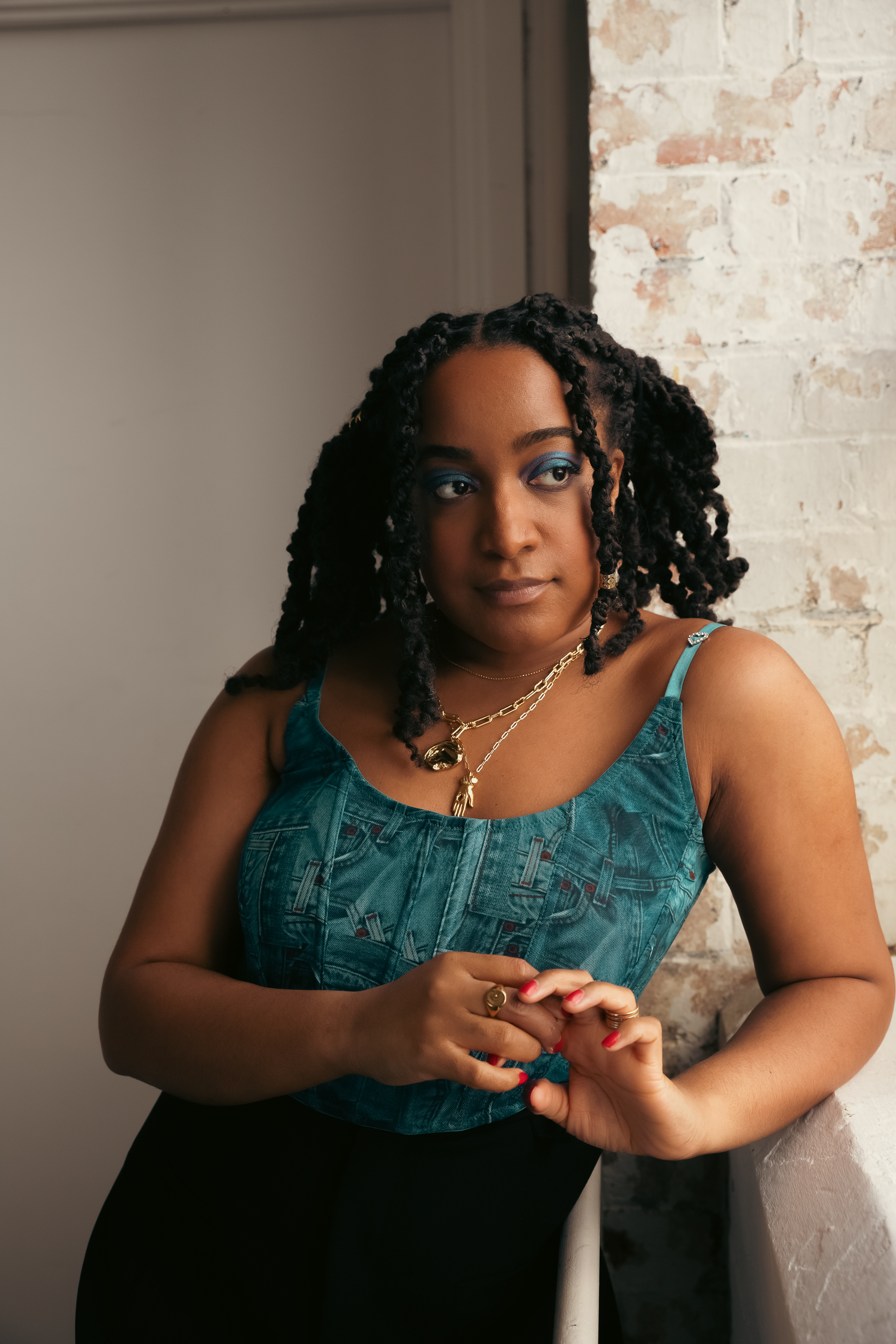
Let’s start with your latest single ‘Reason’ – give us a little rundown on the meaning behind the song and the process of making it.
I wrote ‘Reason’ a couple months ago with a producer called Tevin – he’s really amazing! We’ve been working together for around a year and a half and we’ve written a lot of songs that just really capture the time in which we’ve written them. They’re very timely, political and straight to the point – they cut out all the crap and get right to the crux of the issue. This is the first song we’ve officially released together but there’s definitely more in the pipeline. It’s [Reason] is essentially about when you’re being gaslighted and you come to the realisation that you were and are being manipulated; you realise all the things you thought were true and real were actually true and real and you weren’t just losing your mind. I wanted to write a song that was really empowering and felt really uplifting but talked about an issue that was relevant and important because it exists.
The lyrics are really beautiful – like you said reflecting that realisation and the thought process you go through when you do. Do you have a particular part of the song or any lyrics that you really love and resonate with?
The bridge section towards the end is my favourite part of the song because it rises and gets more and more intense until it gets to the end. My favourite line is ‘so lets call this a reckoning / lost the battle but won the war’ and the line after ‘you’ll ignore all the evidence / led me on it was self defence’. For me those two lines really capture the confusion that you feel when you’re not quite sure of where you stand in your own mind. I think it really puts the accountability on the person that has done that to you rather than yourself.
Right now we’re in an era where artists are genre blending more than ever and getting influences from many different places – it becomes almost impossible to be looped into one category. Your music is often referred to as R&B or Soul but I wanted to ask you personally how you’d define the music you make?
I always use the term soul music because the term soul music represents more than just a sonic. It represents a culture, it represents food, it represents a way of living and passing down knowledge. It’s about black culture, African American culture, Caribbean culture, Black British culture – it’s all of those things in one. I’ve definitely found the genre thing to be interesting, especially navigating that whilst being a black woman in the UK. You get feedback like ‘this isn’t RnB enough’ but what they really mean is ‘this isn’t Black enough’. Or sometimes it’s ‘too RnB’ or ‘it’s too pop’ ‘it’s not pop enough’ or like ‘it’s indie but it’s not really indie’ because they don’t associate that with what I look like. There’s just a lot of unnecessary barriers that are put in front of you when you’re just trying to make music as a black woman in the UK. I feel like just being clear that I sing soul music and that encapsulates soul music as a medium for storytelling about different aspects of life. Contemporary RnB right now is Normani, it’s Kehlani etc. and I’m much closer to Adele and Amy Winehouse in sound than those artists.
What is that like – having to navigate those conversations around genre as a Black woman in the UK?
I think the most radical thing you can do is just be entirely yourself. Speak about the topics you want to speak about, act and dress in the way that feels most authentic to you and the people that will resonate with that will find you.
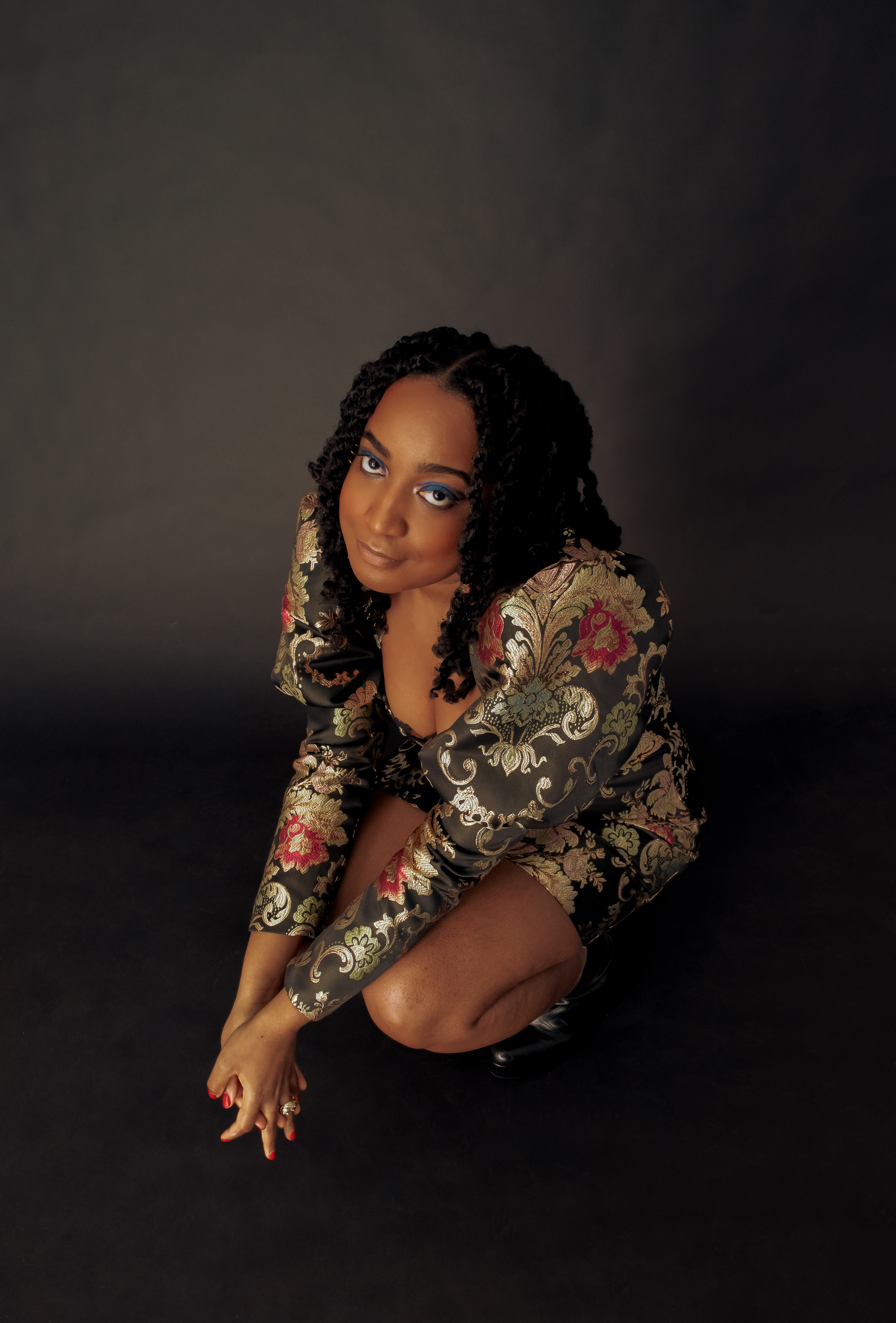
You also studied Anthropology at university which is really interesting. How did you go from Anthropology to music – what was that journey like?
I’ve always really loved history, politics and literature and at university I really wanted to study a subject that allowed me to look at all of those topics in one. The big thing with anthropology is that it looks at society from an outward lens. You’re studying smaller countries and cities so you get a more international outlook on the world. That was really important to me – to go to university and broaden my horizons. Music was something I always wanted to do but there was no clear route when I was young into how that would work. I didn’t go to stage school, I didn’t do any of the prep you would do if you wanted to become a singer when I was 17 or 18 – I was just a normal kid in school. I did my degree and started going to the Roundhouse where I joined a music collective. They were like you’re actually good at this so they put me on stage and let me perform with loads of people and all of a sudden I realised that it could be my job. There was nobody there to tell me or show me that this was an actual career or could be sustainable so that was a really eye opening experience – to be on those stages getting comfortable performing, song writing and figuring out what my sound is and what I have to say. A lot of what I experienced in my degree helped shape the first records I released. I released my first EP ‘Consider This’ in 2019 and it was about gentrification, Alzheimer’s, memory, music, culture and all of the things that had happened in my life but also topics I tackled in my degree. For me, music is an extension of how you view the world and that process gave me a really good understanding and language to be able to translate that in a different way and make it accessible for people.
Do you ever find the two go hand in hand and end up influencing each other and if so, how?
I like to think that the most interesting songwriters look at the most mundane situations and can get something extraordinary from it. In order to look at something everybody else sees everyday and see it as extraordinary you need to be able to access and think in a way that allows you to do that. Studying a subject that is complementary to music – that looks at society, that looks at people , that looks at why we have certain behaviours, why we live the way we do, what has meaning in our life – it helps you do that a lot easier.
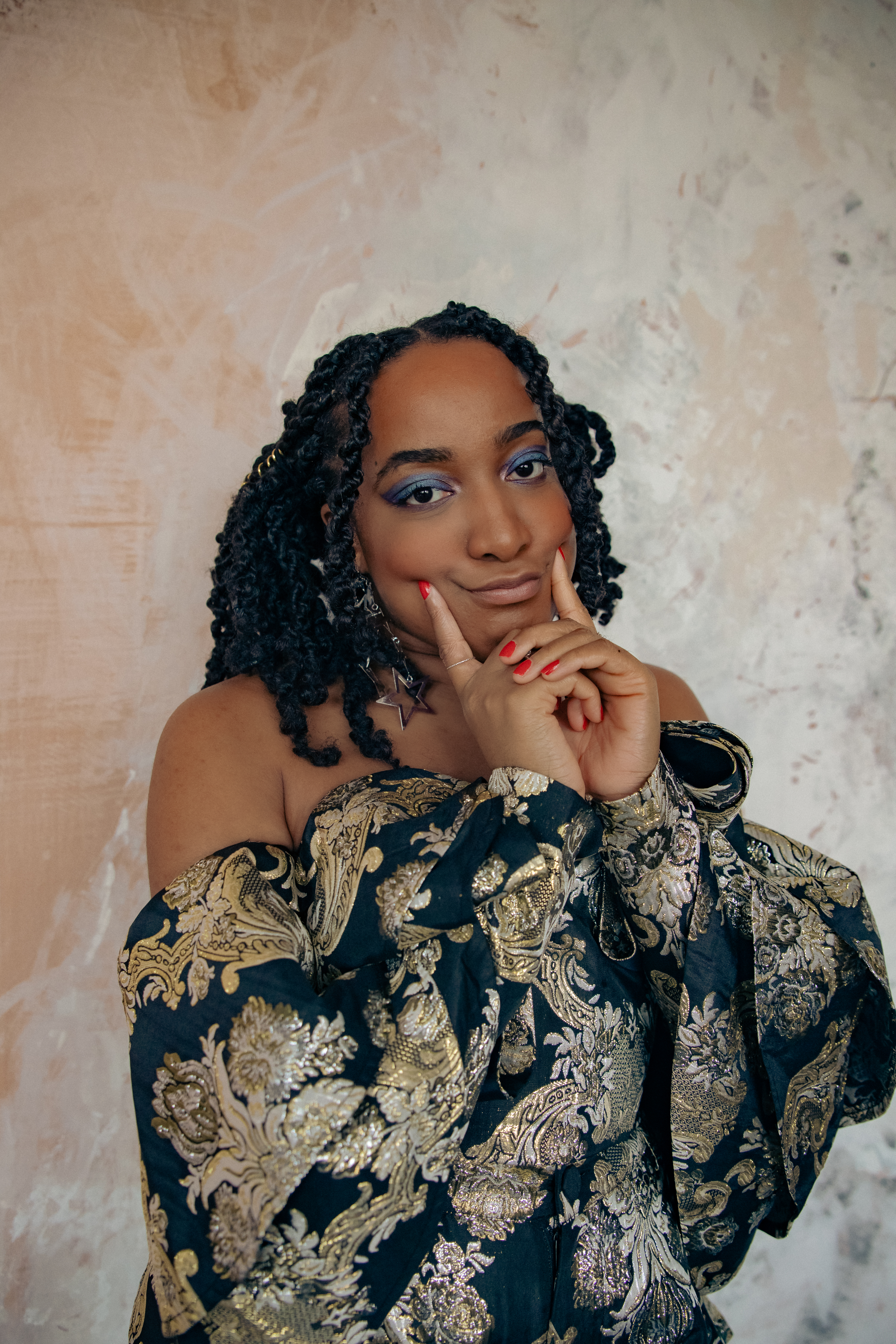
Rightfully so, you’ve had co-signs from a lot of legends – Julie Adenuga, Ferne Cotton and even working alongside Nile Rodgers. What are the biggest takeaways you’ve gotten from experiences like that?
It’s been really lovely to get such great feedback from people I respect so early in my career. It really means a lot because generally people put a lot of emphasis on numbers and data but numbers and data can change, it can be manipulated – so many things can happen. When someone you respect who’s older than you and has seen so many acts do exactly what you’re trying to do says you have the talent, the drive and the skill to get to the level that you want, it fundamentally changes the way that you view yourself. I think over the last year and a half that’s really important for me as I’m learning, growing and figuring out what kind of artist I want to be and what kind of impact I want to have. To know that all I really need to do is just keep being authentic and being myself and I’ll get there, that’s the most powerful thing that I’ve taken away.
Going on from the point of the kind of artist you want to be and the impact you want to have – what does that look like to you?
I always say I want to be the person I needed when I was 15 years old. That’s somebody who can sing, dance and put on an amazing live show but it’s also somebody that is really passionate about activism, social change and making a difference, acknowledges the platform that they’ve been given by being a music artist and not taking that for granted. I want to represent myself in the fullest way rather than narrowing all of my interests into something that I think a pop star should be.
Get Tickets to see Amahla Live on the 10th September at OMEARA




![ZINO VINCI’S ‘FILTHY & DISGUSTING’EP BRINGS YOU TO THE CORE OF THE ARTIST [@ZinoVinci]](https://guap.co/wp-content/uploads/2023/10/Zino-4.jpg)

